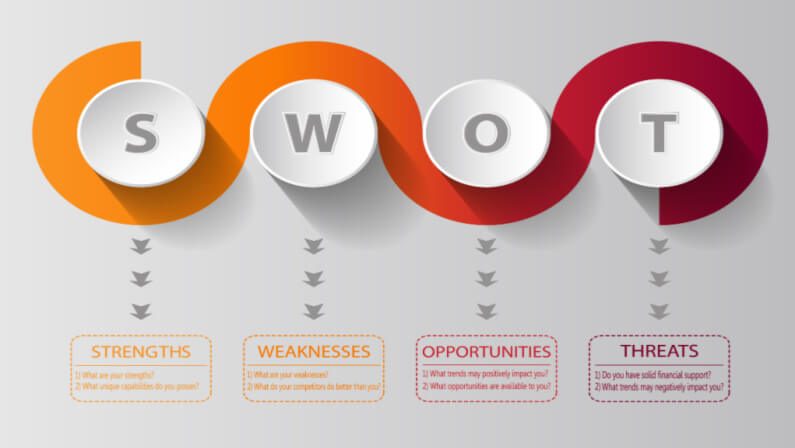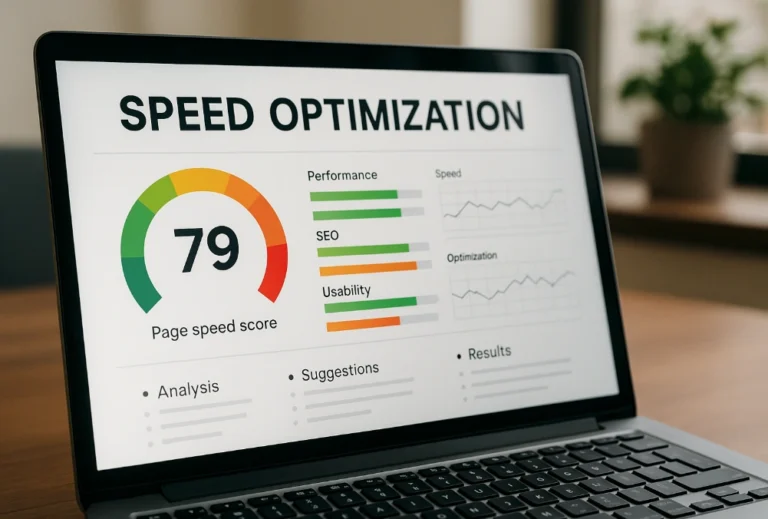In today’s digital landscape, having a strong online presence is crucial for small and large businesses. A well-crafted digital marketing strategy can help you reach your target audience, build brand awareness, and ultimately drive growth and success. But with so many moving parts and ever-evolving technologies, it can be overwhelming to know where to start.
This blog post will provide an in-depth look at what a digital marketing strategy entails and what you need to know to create one that drives results. From defining your target audience to selecting the right channels and measuring success, we’ll cover all the key components of a successful digital marketing plan, and provide valuable insights or practical tips to help your business grow and succeed.
What is a digital marketing strategy?
A digital marketing strategy is a plan for promoting a business or product through digital channels such as search engines, social media, and email. The goal is to reach a target audience, build brand awareness, drive traffic, and ultimately increase conversions and revenue.
Why do you need a digital marketing strategy?
More businesses are now starting to acknowledge the need for a digital marketing strategy to scale and increase revenue. In fact, according to statistics, digital advertising spending is projected to reach $681 billion worldwide in 2023.
Here are several reasons brands invest in a good digital marketing strategy:
Reach a Wider Audience
Digital marketing allows businesses to reach a wider audience than traditional marketing methods. With billions of people online, businesses can expand their reach and target specific demographics, interests, and behaviors.
Build Brand Awareness

A strong digital marketing strategy can help build brand awareness and establish a business as a trusted expert. Consistent messaging, high-quality content and a strong online presence can all contribute to building brand recognition.
Drive Traffic and Sales
Digital marketing can drive traffic and sales by directing prospects to a business’s website, increasing the visibility of its products and services, and ultimately converting leads into customers.
Cost-Effective
Compared to traditional marketing methods, digital marketing can be more cost-effective and offer a higher return on investment (ROI). This is because digital marketing allows businesses to target specific audiences, track their results, and make data-driven decisions.
Stay Ahead of the Competition
In today’s fast-paced and highly competitive business environment, having a strong digital marketing strategy is essential to stay ahead of the competition. Businesses that invest in digital marketing are more likely to be seen as innovators and leaders in their industry.
By investing in digital marketing, businesses can scale their operations and increase their revenue over time.
Strategy vs. Tactic
Strategies and tactics are related but distinct concepts in business and marketing.
A strategy refers to a long-term plan for achieving specific goals and objectives. It outlines a business’s overall approach to reach its desired outcomes and includes considerations, such as target audience, budget, and timeline.
Tactics, on the other hand, are the specific actions and steps taken to implement the strategy. They are the “how” to the strategy’s “what.” For example, a digital marketing strategy might increase brand recognition and drive sales. The tactics used to achieve this could include running social media campaigns, publishing blog posts, and optimizing a website for search engines.
Types of Digital Marketing Strategies
Digital marketing offers a variety of strategies to reach and engage with customers online.
Here are the different types of digital marketing strategies you can choose from:
Search Engine Optimization (SEO)

SEO (Search Engine Optimization) optimizes a website to improve its search engine rankings to increase organic traffic. It involves using keyword research, on-page optimization, and link-building techniques to improve a website’s visibility and attract more visitors from search engines.
Pay-Per-Click Advertising (PPC)
PPC is a form of digital marketing where advertisers and marketers pay for each user click/visit their ad gets. It is a targeted and effective way to reach a specific audience and drive traffic to a website, where the advertiser only pays when the ad is actually clicked.
Content Marketing
Content marketing is digital marketing that involves creating and distributing content to generate and convert leads from a target audience.
Social Media Marketing
Social media marketing uses social media sites to promote a product, service, or brand, engage with customers, and build a brand’s online presence.
Email Marketing
Email marketing is a direct and targeted way to communicate with a target audience. According to a study, email marketing has an ROI of 122%, making it one of the most popular types of digital marketing strategies. Using email to reach their target audience, brands, and businesses can communicate directly with customers and prospects, build relationships, and drive conversions.
Affiliate Marketing
Affiliate marketing is a performance-based marketing approach in which affiliates receive commissions for promoting a business’s products or services.
Mobile Marketing
Mobile marketing promotes products or services to mobile device users through various channels, such as SMS, apps, social media, and mobile websites. It aims to reach consumers on the go and in real-time with personalized and relevant messages.

Marketing Analytics
Marketing analytics is measuring, managing, and analyzing marketing performance data to optimize marketing strategies and improve marketing results. It involves using data and insights to inform and evaluate marketing decisions and investments.
It is important to note, however, that effective digital marketing strategies often combine these strategies rather than relying solely on one type of marketing.
Importance of a Digital Marketing Strategy
A digital marketing strategy is crucial for businesses to scale and increase their revenue. Learn why a solid plan can increase competitiveness, market relevance, global reach, and business growth.
Gaining a Competitive Edge
A digital marketing strategy helps businesses stand out from their competitors. It provides innovative ideas for product creation, development, and promotion to gain a competitive advantage.
Staying Up-to-Date
In the ever-evolving business world, staying current is crucial for businesses to remain ahead of new competition. Digital marketing strategy helps companies stay relevant using modern tools and techniques.
Connecting with a Global Audience
By utilizing digital marketing channels, companies can reach a wider audience globally and increase their brand exposure, ultimately expanding their business.
How to Build a Digital Marketing Strategy
Creating a good digital marketing strategy may take time and effort, but the results are always worth it.
Here’s how you can build one for your business.
Conducting a SWOT Analysis

A SWOT Analysis involves evaluating your organization’s Strengths, Weaknesses, Opportunities, and Threats to gain a comprehensive understanding of your company’s current state and identify areas that need improvement.
Defining Your Target Audience
Understanding who your target audience is and their needs and preferences are crucial to developing an effective digital marketing strategy.
Setting Objectives and Goals
This involves determining what you want to achieve through your digital marketing efforts and setting specific, measurable, achievable, relevant, and time-bound (SMART) goals to guide your efforts.
Selecting the Right Channels
There are many digital marketing channels, including email marketing, social media marketing, content marketing, and search engine optimization. It’s important to choose the channels that will be most effective for reaching your target audience and achieving your goals.
Creating a Content Plan
A strong content plan is a critical component of any digital marketing strategy. This involves creating and curating high-quality content to engage and educate your target audience, build trust, and drive conversions.
Implementing and Executing Your Strategy
Once you have a clear plan, it’s time to start implementing your strategy. This involves executing your content plan, running campaigns, and tracking your results to ensure that you meet your goals.
Measuring and Optimizing Your Results
Ongoing measurement and analysis of your digital marketing efforts are essential for continuous improvement and success. This involves tracking key metrics, such as website traffic, conversions, and engagement, and using the insights gained to optimize your strategy and improve your results over time.
What are the roles of digital marketing leaders and teams?
The responsibilities of digital marketing leaders and teams involve creating and carrying out a successful digital marketing plan that meets the business’s goals.
They must measure the success of their digital marketing efforts by setting and tracking key performance indicators. Leaders and teams use data and analysis to make informed decisions and improve marketing campaigns, and they work closely with other departments, such as IT, sales, product, and customer service, to ensure a smooth customer experience.
Besides this, digital marketing leaders and teams also keep up-to-date with industry trends and emerging technologies and use these to enhance their marketing efforts.
At LeadOrigin, we stay at the forefront of industry trends and innovative technologies and work closely with our clients to integrate these into their marketing initiatives. Our goal is to help businesses leverage the power of digital channels and technology to reach their marketing objectives and achieve scalable growth.

Digital Marketing Strategies
Digital marketing offers numerous ways to reach and engage with potential customers.
Here are some strategies you can use for your own digital marketing campaigns:
Write a blog.
Blogging is an essential tool when it comes to marketing your business online. A well-written and thoroughly researched blog post can address the concerns of potential customers. To be effective in blogging, it’s important to understand your target audience and their challenges and create content that addresses their needs.
Use paid advertising.
Platforms such as social media advertising, PPC, Google Ads, and online advertising can help increase brand recognition and reach audiences who might not find your business through organic means. Plan your advertising campaign carefully to ensure its success.
Provide educational resources.
Offer free educational resources in exchange for email contact information to generate leads and convert visitors into customers. Use best practices for landing pages to promote the download of these resources.
Optimize for search engines.
SEO helps improve your search engine rankings and increases the visibility of your blog and educational content. Focus on developing an effective on-page SEO strategy.
Organize a giveaway or contest.
Giveaways or contests can raise brand awareness, increase followers, and generate leads, especially for consumer products or services that involve physical deliveries.
Host a webinar.
Webinars are an effective way to educate the public and give leads an opportunity to hear from a company representative and ask questions. Consider creating a dedicated webinar page on your website.
Start a podcast.

Audio marketing is growing in popularity, and producing a podcast can educate and engage your audience. Choose a topic that is relevant not just to your business but also to your target audience.
Implement an email marketing campaign.
Email marketing is a crucial digital strategy to reach and engage potential customers interested in your products. However, it is only effective when targeted toward individuals who have subscribed to your mailing list. You can gain subscribers through various means, such as your blog, contests, or webinars. Once someone provides their email, you can send targeted email campaigns.
What are the most effective digital marketing strategies?
A successful digital marketing strategy typically involves defining the target audience, selecting the right channels, creating compelling content, and regularly measuring and refining the approach. By taking a data-driven and customer-focused approach, businesses can develop a digital marketing strategy that drives real results and helps them achieve their goals.
Implement an Effective Digital Marketing Strategy and See Your Leads and Conversions Grow
Implementing an effective digital marketing strategy is crucial for growing your business. You can increase your leads, conversions, and overall success with the right techniques.
From email marketing campaigns to search engine optimization, the right strategy will help you reach and engage your target audience. Don’t wait. Start developing a strong digital marketing plan today and watch your business thrive.
If you don’t know where or how to start, our seasoned team of digital marketing experts here at LeadOrigin can help you create and implement a customized strategy to increase your leads and conversions to maximize your online presence.
From SEO and PPC to email marketing and social media advertising, we’ll help you reach your target audience and achieve your business goals. Partner with us today and experience the growth you deserve.
Contact us for a free consultation or visit us in any of our locations in Houston, Austin, and Dallas, Texas.






